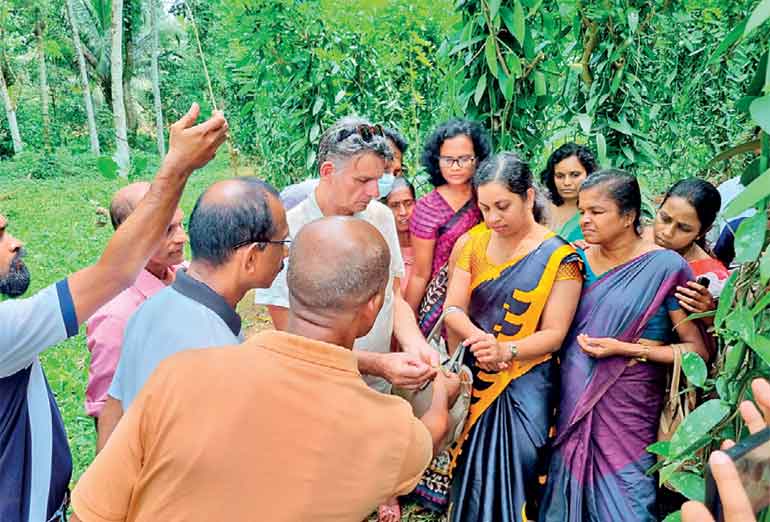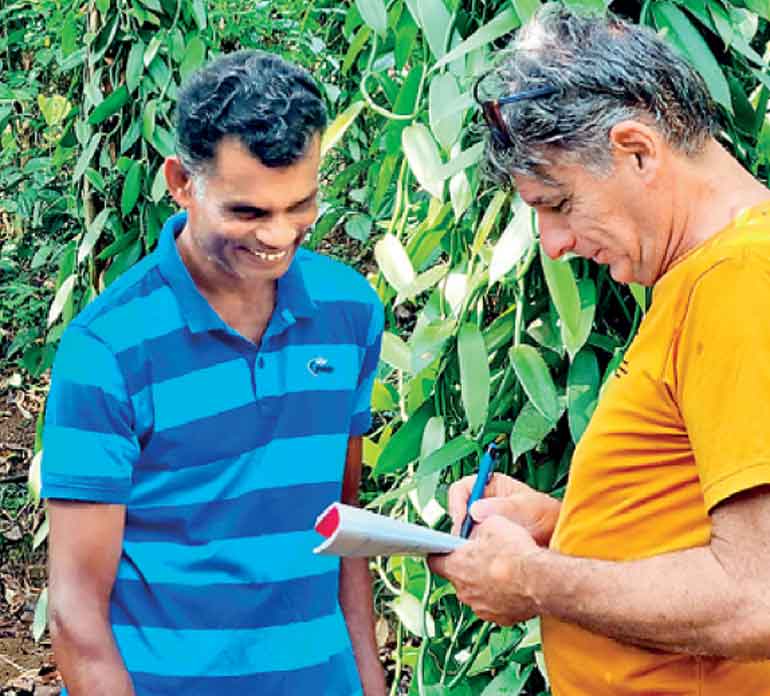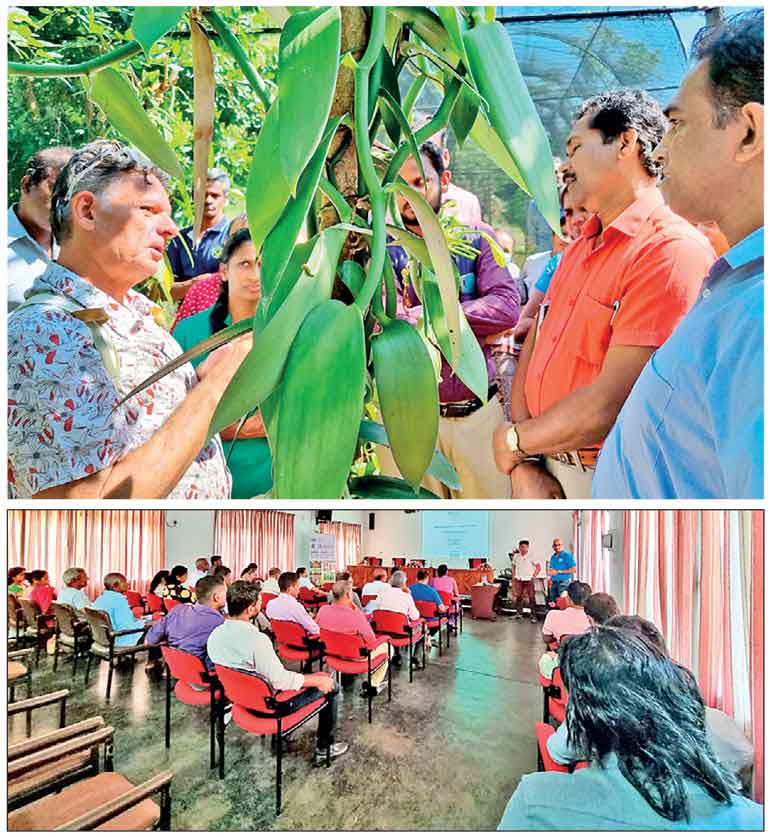Tuesday Feb 17, 2026
Tuesday Feb 17, 2026
Thursday, 4 May 2023 01:10 - - {{hitsCtrl.values.hits}}

A series of farmer field training and Training of Trainers (TOT) on vanilla cultivation has been successfully conducted in Horana, Pasyala, Gampola, and Matale by the United Nations Industrial Development Organization (UNIDO) in collaboration with the Department of Export Agriculture (DEA).
This is part of the BESPA-FOOD project, implemented by UNIDO and the Food and Agriculture Organization (FAO) and funded by the European Union (EU).
The project supports the development of four value chains in Sri Lanka: vanilla, coconut, banana, and cassava.
Vanilla cultivation in Sri Lanka has grown rapidly in recent years due to the favourable climate conditions and availability of suitable lands for production. The crop has high export potential. Therefore, the training aims to provide practical guidelines to farmers and Extension Officials (TOT) to increase their knowledge of vanilla agronomy, pollination, and basic curing practices in order to support the development of vanilla cultivation in Sri Lanka.
“Vanilla fits the Sri Lankan agricultural environment; it is relatively disease and pest-free, requiring low capital investment and simple technology. It is an exotic spice in demand by the food industry and consumers, and most importantly, the value/weight ratio is high. UNIDO-BESPA is embarking on transforming vanilla into a Sri Lankan dream crop” stated Sampath Senanayake, National Agribusiness Specialist, UNIDO.

To illustrate, farmers and Extension Officials (TOT) learned vanilla agronomy practices such as looping, stressing the vines, and pollination of flowers through field training sessions. Best practices in vanilla cultivation in areas of fertilisation, shading, watering, and pruning techniques, among other environmental requirements, were also shared. The training equipped participants with the knowledge and skills on how to pollinate vanilla flowers, resulting in increased yields and higher-quality vanilla beans.
The Department of Export Agriculture (DEA) has realised the importance of developing and promoting vanilla cultivation in Sri Lanka. On average, vanilla takes 3 to 3.5 years to produce. Crop management is labour-intensive while hand pollination and curing demand specialised skills. As there is significant interest among the growers in learning how to grow vanilla, the development of the vanilla value chain needs more awareness and training. While it is easy to understand the commercial benefits, specialised knowledge is needed to recognise these benefits.
Throughout the training, participants were able to practice the techniques to pollinate the vanilla flowers under the guidance of UNIDO’s International Vanilla Expert Dr. Michel Grisoni, a vanilla agronomist, with over twenty-five years of experience in the vanilla sector. This is the first time the DEA received expertise on vanilla cultivation from an international consultant. Dr. Grisoni has experience working with vanilla orchids in Madagascar, Reunion Island, and French Polynesia.

“Vanilla growers need to do some specific control practices to induce the vines’ flowering and produce good beans. They can use techniques, such as nipping the vines and increasing the sunlight on the vines by pruning the support trees” suggests Dr. Grisoni, International Vanilla Expert, UNIDO.
Sri Lanka’s vanilla exports account for nearly 0.94% of global demand, as stated by the Sri Lanka Export Development Board. Compared to some of the largest players in the market, Sri Lanka’s exports are significantly lower in quantity. Madagascar, the largest vanilla exporter in the world, exports 63.3% of vanilla, while France, the second largest, exports 6.52% of the global demand. With the growing demand for vanilla as a spice and an essential ingredient, providing farmers with skills-based training will further improve vanilla production in Sri Lanka, obtaining a better position as an exporter on the global vanilla map.